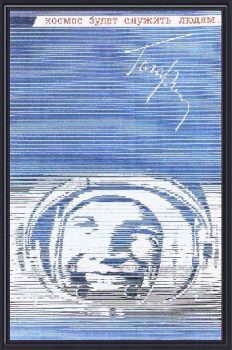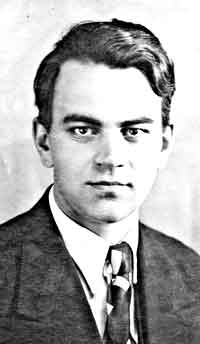Tag Archives: Yuri Gagarin
My Connection to Yuri Gagarin, The First Man in Space, and Other Fun Facts About Your New Russian Blogger Jenya Posted by Jenya on Feb 4, 2014

1. Yuri Gagarin and I are connected! My связь (connection) to Yuri Gagarin, the first man in space, did not become apparent to me until I was 27 years old. Yuri Gagarin was the first Russian космонавт (cosmonaut). Gagarin received his training and met his future жена (wife) in the city of Orenburg. Coincidentally, that…
How to Be A Cosmonaut for a Day Posted by yelena on Apr 11, 2011

Are you ready for tomorrow? You might be asking «а что будет завтра?» [just what will be happening tomorrow?]. A quick look at the calendar will tell you that tomorrow is «двенадцатое апреля» [April 12th]. If you enter this date into Google search you will see that, in addition to it being a «сто второй…
Russian Space Songs Karaoke Posted by yelena on Feb 25, 2011

Well, it’s «февраль» [February] and the weather is absolutely dreary. All around me – «снег» [snow] and «сугробы» [snow drifts] and freezing temperatures. So all I want to write about is tropical climes, but Russia isn’t famous for those. So instead, I’m going to talk about «астрономия» [astronomy]. «Сперва» [at first] I thought about…
Why Do Russians Call Their Astronauts Cosmonauts? Posted by yelena on Feb 10, 2011

Today, February 10th 2011 marks «столетие со дня рождения Мстислава Всеволодовича Келдыша» [one hundredth birthday of Mstislav Vsevolodovich Keldish]. Keldish was a Soviet scientist without whose contributions many of «успехи советской космонавтики» [achievements of the Soviet cosmonautics], including Sputnik and the first manned flight would not had happened. Although his name rarely appeared in…
«Свой человек»: Unraveling a Possessive Pronoun Posted by josefina on May 21, 2010

«Свой» [one’s; his; her; their] is a «притяжательноеместоимение» [possessive pronoun] just like «мой» [my], «твой» [your (singular)], «наш» [our], «ваш» [your (plural)], «его» [his], «её» [her] and «их» [their]. Not all languages have this possessive pronoun – shout out to all you proud native speakers of English! – and that’s why it is not always…


